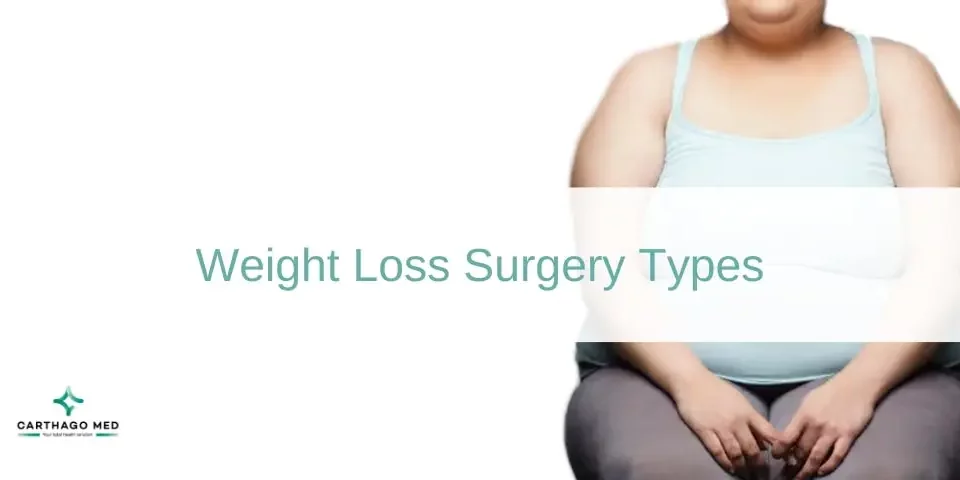
AM I A GOOD CANDIDATE FOR SLEEVE GASTRECTOMY?
Sleeve gastrectomy is a solution that allow you to finally lose those extra pounds that are affecting your well-being and quality of life. However, as with other obesity procedures (gastric banding, gastric bypass…), this technique is not for everyone, and you will need to meet certain conditions if you wish to benefit from this procedure.Here is how to know if you are a good candidate for a sleeve gastrectomy.
What are the conditions required to undergo a sleeve gastrectomy?
Sleeve gastrectomy is not a procedure to be taken lightly: you need to be aware of the after-effects of the operation, the importance of the follow-ups and the need to adopt a new mindset in order to achieve satisfactory results in the long term.
Many points must be respected in order for you to be a good candidate for the procedure:
First and foremost, your Body Mass Index (BMI) plays a pivotal role. During the preliminary consultation, your BMI will be evaluated. Typically, surgery is considered for individuals with a BMI exceeding 35. However, if obesity-related health issues are present, consideration can begin with a BMI of over 30. Additionally, it’s imperative that you have made earnest attempts at weight loss through dieting and physical activity, proving unsuccessful in achieving significant results. Your current weight should also be in proximity to your ideal weight. Age is another crucial factor. Generally, individuals between the ages of 18 and 60 are eligible for this procedure.
Moreover, mental preparation is essential. Since Sleeve Gastrectomy is irreversible, understanding the gravity of the procedure is vital. Mental strength and discipline are prerequisites, as post-surgery demands a strict lifestyle, including new dietary habits, regular exercise, and avoidance of specific foods. Furthermore, there should be no contraindications. You should not suffer from severe underlying health conditions, and psychological disorders should be absent. Lastly, readiness for the post-operative period is mandatory. You will be required to attend numerous follow-up appointments, ensuring your progress is monitored diligently by a multidisciplinary team. Adherence to this thorough post-operative care plan is crucial for the long-term success of the Sleeve Gastrectomy.
What are the reasons for the ineffectiveness of other weight loss methods?
If you have tried many conventional techniques in the past but have not been able to lose weight satisfactorily, then sleeve gastrectomy, or other bariatric surgery, may be the right solution for you. The reason for this is that following a long diet or rigorous exercise regime in a disciplined way is not always possible for everyone. Whether due to lack of time, lack of motivation or other reasons, results are slow to come or do not come at all, and if you want to try a more direct and effective method. Sleeve gastrectomy can then help you to finally get rid of your obesity.
Why is it important to have pre-operative consultations before undergoing a sleeve gastrectomy?
Of course, as with any other surgical operation, pre-operative consultations should be scheduled. These consultations will allow the surgeon to assess your case, confirm whether or not you are suitable for the operation, and advise you on which surgical procedure is best for you (for example, in some patients, for different reasons, one bariatric surgery technique is more recommended than another). Before confirming the procedure, you will need to prepare a full medical file, including a medical history, blood tests, previous operations and various tests which will be provided by the specialist in due course. Once you have completed all the tests requested, it will be possible to confirm whether you are eligible for the operation.
What are the contraindications?
Sleeve gastrectomy, a surgical procedure aimed at weight loss, comes with several potential contraindications that individuals need to consider. These include having inflammation or pathology in the digestive system, as well as pre-existing respiratory or cardiovascular diseases. Additionally, individuals with specific addictions, particularly to alcoholic beverages, might not be suitable candidates for this procedure.
Furthermore, those suffering from certain mental disorders face limitations. During the preliminary consultation, if a surgeon identifies that obesity is connected to a psychological disorder, they may recommend therapy with a psychologist before considering any surgical intervention. It is crucial for patients desiring obesity surgery to be mentally and emotionally stable. They should possess the necessary mental strength to handle the preparation, the surgical procedure itself, and the subsequent recovery period. These factors are essential considerations to ensure the safety and efficacy of sleeve gastrectomy for individuals seeking weight loss solutions.
Why is surgery alone insufficient for effective weight loss?
Finally, if you really want to lose weight and finally have the body you’ve always dreamed of, you need to be aware that sleeve gastrectomy, or bariatric surgery in general, is not a magic solution; the result can be spectacular, but only if you take things very seriously and adopt the right mentality and habits, especially in the weeks and months following your operation. The operation has a specific aim: to help you reduce the amount of food you eat at mealtimes. Since a large part of the stomach will be removed during the procedure, you will only be able to eat smaller portions, and the feeling of hunger will be considerably reduced on a daily basis (the part of the stomach removed secretes Ghrelin, which is the appetite hormone).
In addition to this, your willpower must be strong, and you will need to show consistency in order to keep a satisfactory and stable weight for as long as possible. Thanks to a new lifestyle, a daily routine based on discipline, and a rigorous post-operative follow-up, you can expect to lose an average of 50% of your excess weight; this loss is already a great success, and will allow you to benefit from a better comfort of life and to considerably reduce potential illnesses directly or indirectly linked to obesity (breathlessness, cardiovascular problems, sleep apnea, etc.).
Is Mental Preparedness Crucial for Successful Gastric Sleeve Surgery Outcomes?
Successful outcomes after gastric sleeve surgery often depend on mental preparedness . Patients need to be psychologically ready to embrace the changes that come with significant weight loss. Addressing psychological is integral to achieving sustainable weight loss and overall well-being post-surgery.
When is Gastric Sleeve Surgery the Best Option?
Mental preparedness stands as a cornerstone for achieving optimal outcomes in gastric sleeve surgery. The journey toward successful weight loss surgery transcends the physical realm; it delves deep into the mental and emotional aspects of an individual’s well-being. Beyond mere readiness, it involves a profound psychological develop coping mechanisms, and bolster their self-discipline. This mental resilience not only aids in overcoming post-surgery hurdles but also ensures the sustainability of weight loss results in the long term. Therapeutic interventions, counseling, and support networks play pivotal roles in nurturing this mental preparedness, addressing underlying concerns, and empowering patients to embrace their newfound health and vitality with confidence. In essence, mental preparedness is the linchpin upon which the success of gastric sleeve surgery outcomes pivots, paving the way for enduring well-being and a brighter, healthier future.









